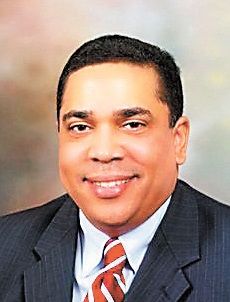I believe in Tim Rebowe
September 2, 2015
LSU loaded with returnees in 2015
September 2, 2015Whether Terrebonne Parish’s method of selecting judges violates a key provision of the federal Voting Rights Act could get an early answer, if the judge hearing a lawsuit on the matter is moved by pending pleas from both sides.
Lawyers from the NAACP Legal Defense Fund, who represent the Terrebonne Parish branch of the NAACP and some of its members, are seeking a permanent injunction barring parish-wide voting for each of the 32nd Judicial District’s five district court judges. They would replace the current scheme with creation of a minority sub-district, which they say would make election of a judicial candidate for one of the parish’s benches reflect the desires of black voters.
Lawyers for Louisiana’s governor and attorney general say they are powerless to effect the change requested, and should be let out of the controversy overall. But they also maintain that there is nonetheless not enough evidence to support the NAACP’s case om any event, and want the suit dismissed altogether.
“Although black residents comprise 2 percent of Terrebonne’s population, are geographically concentrated within the parish, and consistently vote together to attempt to elect candidates of their choice, no black candidate has ever been elected in a contested election in the 32nd Judicial District,” reads a statement from an NAACP Legal Defense Fund spokeswoman, Sarah Massey. “White voters in Terrebonne overwhelmingly decline to cast their ballots for the candidates that black voters support. As a result, black candidates cannot win a parish-wide election under the current electoral system.”
Moreover, in the request for summary judgment — a finding on the basis of the briefs that the rules for voting are discriminatory and violate the law on their face – is rooted in a belief that when the 32nd Judicial District was created in 1968, at-large voting of judges was intentionally built in, to deliberately dilute the minority vote in judicial elections.
The centerpiece of an effort by Louisiana to render the recently passed Voting Rights Act was the state’s authorizing of at-large electoral method of choosing various parish boards.
“In the same year, the 32nd Judicial District was established, and its members began to be elected at-large,” an NAACP brief states, noting that nearly 150 objections to plans for at-large voting statewide were opposed by the U.S. Department of Justice, which found that the at-large method of election “if widely implemented, will have the effect of discriminating against Negro voters.”
Consistent with those objections, the brief states, federal courts in Louisiana have struck down the at-large scheme because of discriminatory effect.
Attorneys for the state have attacked the suit from several directions. And court papers filed, as well as depositions taken in preparation for trial, indicate that the election of former assistant district attorney Juan Pickett last year to the Terrebonne Parish bench is proof that a black candidate can win a parish-wide judicial election.
The NAACP lawyers, however, say that the election of Pickett, who is black, proves nothing because he was not opposed. His race, they maintain, is thus immaterial. And the overall question, they say is not whether a black judge can be elected, but if any judge who is favored by minorities in Terrebonne can be elected.
If not, the NAACP attorneys maintain, then the minority vote is so diluted that adherence to the voting rights act is impossible. Terrebonne’s method of choosing a judge, they argue, must then be changed.
As indicated in the depositions, however, state attorneys aren’t giving up that easily.
Tom Jones, representing Secretary of State Tom Schedler, brought up Pickett’s election while questioning former Houma Assistant Fire Chief and current parish council candidate Daniel Turner, one of the suit’s plaintiffs.
“Juan Pickett was blessed in my opinion. To me, he was anointed by God from birth for this position, and so therefore, I think he was chosen at birth for the position by God,” Turner said. “That’s one view. Then you have some other views that some think that the political leaders of Terrebonne Parish chose him for the position thinking that it would help to demoralize or minimize the lawsuit, but it’s not going to do that because he was elected.”
Jones asked Turner if he believed that “a handful of white judges picked (Pickett) to be a judge.”
Turner said he didn’t know if it was judges.
“Juan Pickett worked for the District Attorney’s office for around 21 years,” Turner said. “He’s qualified. He’s a good man. He’s a caring man. He’s a loving man. So I think that is one of the main reasons that he was chosen. And then also, there were those who … I guess the political fathers who had chosen him, who were thinking that once he was chosen and would win, that they would sort of throw the lawsuit over or minimize the lawsuit. That’s another view.”
Pickett himself has heard the conspiratorial theories, that he was somehow chosen to eliminate the argument in favor of a minority sub district, something he dismisses as “crazy talk.”
Senior Judge James Joseph Brady, appointed to the federal bench in 1999 by President Bill Clinton, is presiding over the case. He has given all sides three weeks to answer each other’s briefs.
He can then decide whether to toss the suit, move ahead with a trial, or grant the NAACP lawyers a victory without one.











